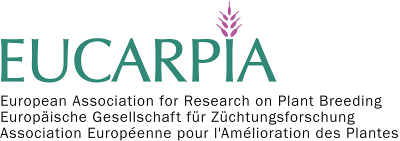
MISSION
Mission of the Fodder Crops and Amenity Grasses Section
Mission of Fodder Crops and Amenity Grasses Section is to provide the up-to-date knowledge on the genetics, physiology, ecology, biotechnology and breeding of forage grasses and legumes, as well as turf grasses. Special attention is paid to develop and strengthen a bridge connecting basic and applied research including plant breeding. We fully believe that only synergy between these two (not necessarily clearly distinguished) groups can help in effective mitigation of the impact of climate changes.
FCAG section conferences are held every second year and working group workshops irregularly.

EUCARPIA aims to promote scientific and technical co-operation in the field of plant breeding in order to foster its further development. To achieve this purpose, the Association arranges and sponsors meetings to discuss general or specific problems from all fields of plant breeding and genetic research. Activities with a predominantly commercial interest are excluded, as EUCARPIA is a non-profit organization.
Founded 1956 and officially seated in Wageningen (The Netherlands), EUCARPIA provides considerable impact on improving international contacts in plant breeding research for nearly 60 years.
International Cooperation
The Association consists of members from all over Europe and over 30 other countries worldwide. EUCARPIA initiates relationships and co-operates with other national and international organizations in fields relevant to plant breeding.
Exchange of Methods
EUCARPIA is organized in 11 sections together with several subsections and working groups. Each section is engaged in a certain field of research, or in certain groups of crops. EUCARPIA encourages its members to take part in several sections. New methods and techniques can therefore be rapidly integrated into the wider field of plant breeding.
Exchange of Specialized Knowledge
The interaction between people working in the same field of interest, or with the same crop, can contribute effectively to plant breeding. The exchange of specialized knowledge has proven to be of the greatest importance to all researchers and breeders involved.
Exchange of Plant Material
Plant breeders from all over the world, who meet in EUCARPIA working groups, help each other through the exchange of genetic material. Furthermore the Genetic Resources section has played an important role in the establishment of regional gene banks.
Journal Suscriptions at Reduced Rates
Individual members are entitled to subscribe at very reduced rates to some scientific journals: Plant Breeding, Euphytica, Molecular Breeding, Theoretical and Applied Genetics, Plant Genetic Resources, and Genetic Resources and Crop Evolution. Ask the EUCARPIA Secretariate or visit the EUCARPIA web page for current rates.
Specialized Sections
Each member can participate in one or more (or all) sections.
EUCARPIA's 11 sections are:
♦ Potatoes
♦ Cereals
♦ Fodder Crops and Amenity Grasses
♦ Biometrics in Plant Breeding
♦ Genetic Resources
♦ Maize and Sorghum
♦ Vegetables
♦ Fruit
♦ Ornamentals
♦ Oil and Protein Crops
♦ Organic and Low-Input Agriculture


